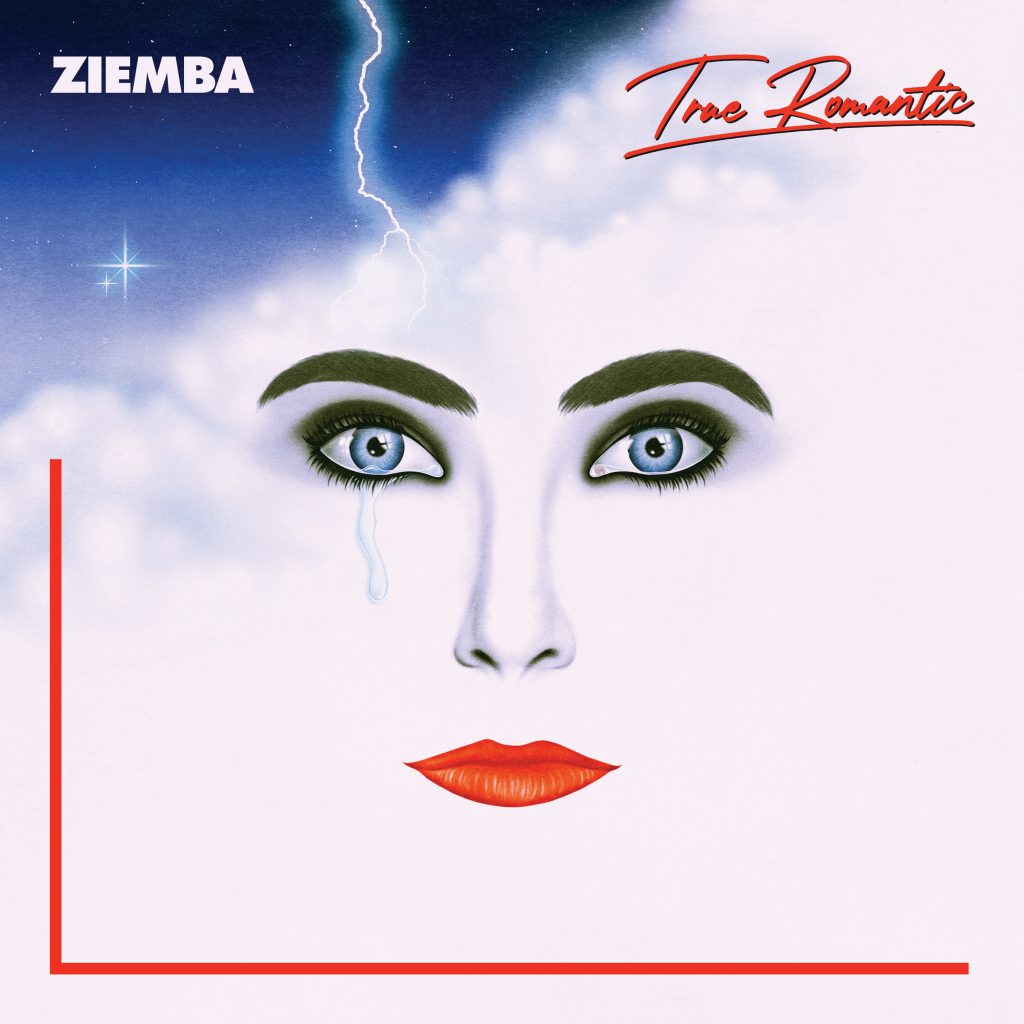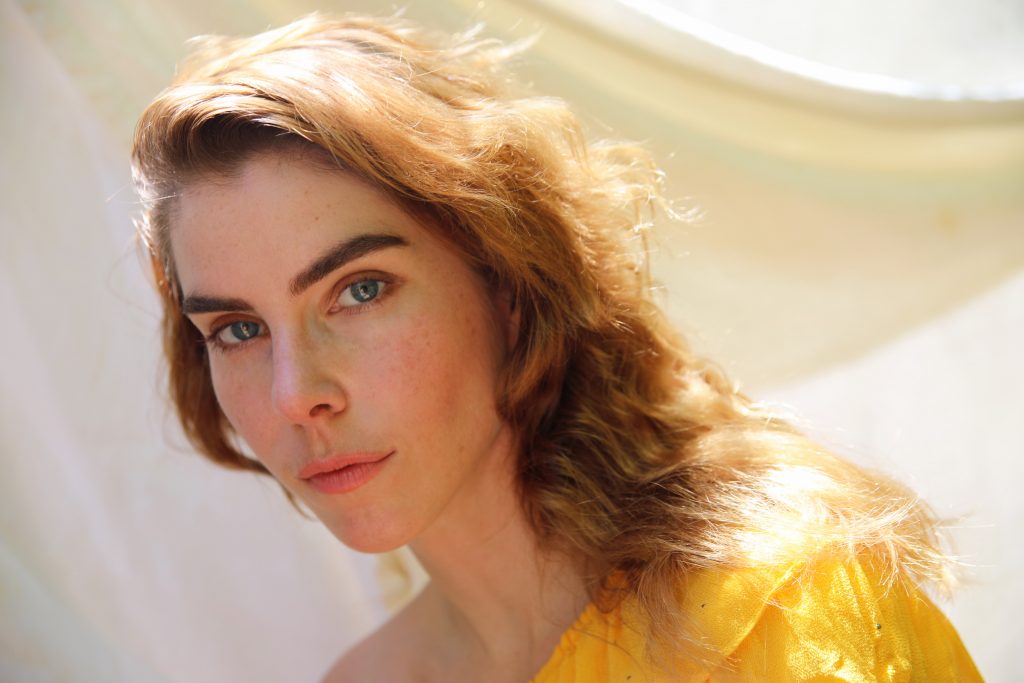Ziemba
True Romantic (Sister Polygon)
Contact Jacob Daneman about Ziemba
As children we’re bombarded with images of what love is supposed to look like: heteronormative relationships, fairy tale endings, infatuated love songs. We can try to eschew the brainwashing, to unleash our imaginations, but some of it inescapably becomes part of us. That’s, in some ways, what René Kladzyk is confronting with brutal honesty on her latest full-length as Ziemba, True Romantic: realizing what elements of this conditioning have become part of her, reckoning with all of those encoded ideas about what love is supposed to be and trying to process them. It’s her biggest and most emotionally raw songwriting to date, a deceptively breezy heartbroken rock-and-roll record that draws from her kaleidoscopic palette of influences: experimental pop, teary country, doo-wop, glam. There are rocking slow-burners, stadium-sized solos, solo piano songs. Her voice soars.
“Did I imagine it all?” wonders Kladzyk, staring down the reality of a short-lived romance flickering out, on the album’s dreamy opener. It’s heavy with hopes raised too soon, as she wonders where things all went wrong. “I don’t trust my sense of time / I may have got it mixed up in my mind,” she sings. “If I’m Being Honest” was written “after someone I was just beginning to develop feelings for ghosted me and disappeared off the face of the earth.” It’s followed by “True Romantic,” the album’s galloping title track, full of tension and anticipation where Kladzyk is making sense of it all still. “I must be a true romantic,” she realizes, in awe. “Or a fool… or delusional!” she belts, backed by booming live drums, velvety riffs, fluttering synths and flute. The video is perfectly melodramatic, starring Kladzyk up at night pouring over love notes, spliced with backlit, windblown portraits.
True Romantic is a reminder that at heart, Kladzyk is a vocal stylist whose arrangements defy categorization. Over the past decade, her expansive, multisensory and multidisciplinary creative process has bridged music and performance, writing and visual art, as well as experiments in making fragrances to accompany sonic environments. She has often used albums as jumping off points for something much bigger: to create worlds incorporating architectural influences, theatre performances, set design, aesthetic framings and color theories. Her 2019 record Ardis was inspired by “speculative science fiction, feminist geography, and the feeling of ecstasy that can happen when a bunch of people are singing together.”
In a radical shift for Kladzyk, True Romantic is one thing: a record. “I made this record because it felt good on a gut level,” she explains. But it is no less ambitious than her previous work, it’s just that here, her intricate conceptual project seems to be processing the surreal experience of realizing you’re a person with feelings that you cannot ignore any longer. In a way, it also serves as a sort of meta commentary on the ways pop love propaganda has seeped its way into her subconscious ideas about romance and relationships, told through her own surreal study of the bombastic power ballad. True Romantic finds her channeling her childhood love of Celine Dion (“The Power of Love”), referencing the 1998 romantic fairy tale drama Ever After (“Bad Love”), singing lines pulled straight from her diary (“Feelings Are Real”). In her own words, it’s about “sitting with really embarrassing feelings, and then giving myself a pep talk that it’s okay to do that.”
“Celine Dion was my first tape, and I do think she was my first voice teacher, singing along to her songs when I was six,” Kladzyk recalls. “Celine Dion and Disney movies…. I cannot remove them from my musical consciousness, as much as I would like to try. They’re just too deeply embedded. I felt that tension with writing these love songs. I don’t want to be prone to that stereotypical archetype of what hetereonormative romance looks like, but it’s also so deeply embedded in my consciousness. As I explore what love means to me, I can’t avoid it, I have to respond to it, and think about it, and think about how that programming has shaped me as a lover.”
“Feelings Are Real” is appropriately haunting, like a feeling about another person you can’t shake out of your head. It was recorded with a choir in a shipping container during a residency at Brooklyn’s Pioneer Works. “You Feel Like Paradise” is a 70s glam rock take on a song from her country band Rhinestone’s repertoire, where she plays a grand piano. “Bad Love” is a modern classic about a bad date: “I had been flirting with this person on Instagram for a year and then we went out and… It was such a failure.” The song sounds like an old-school 50s love song, made uncanny and uncomfortable with subverted production, chirpy guitars and billowy strings.
For True Romantic, Kladzyk’s vocal-and-piano driven songs were brought to life in the studio, her first time credited as a producer on every track. And after the largely electronic Ardis (where there was not a single guitar or live drum to be found), for the new record she returned to building the songs with a full band: “It was really thrilling, screaming in the recording studio.” She worked with two different groups—one in NYC and one in DC—who hail from vastly different corners of the music world: co-producer Don Godwin (Too Free, Gauche, Clear Channel), and contributors including guitarist Mike Haldeman (Moses Sumney, Altopalo) and saxophonist Jeff Tobias (Sunwatchers, Thee Reps, Modern Nature), producer/synthesist Kiri Stensby (Eartheater), and many others. “I think it is highly appropriate to my musical taste that there are musicians from so many wildly different genres on the album. It’s a reflection of my perspective as a musician that it has so much representation from totally different musical scenes.”
Since making True Romantic, Kladzyk has relocated to her teenage hometown, El Paso, TX, where she works as a journalist for a local newsroom covering the US/Mexico border. And over the past few years, her creative practice has expanded to include writing and reporting, including advocacy on behalf of musicians fighting for a fairer and more transparent industry. To that end, it would be impossible for her to not view the album’s stark vulnerability through a politicized lens.
“I’m resentful of how frequently people frame emotionality in opposition to rationality,” she says. “As though emotional depth isn’t part of being a rational person. I feel compelled to defend emotional expression as valid and needed expression. The emotion vs. reason dichotomy is a direct consequence of patriarchal thinking… It’s okay to be a baby sometimes, and let it out— to wear your heart on your sleeve as they say.”

